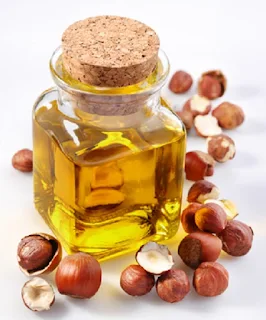Understanding the Difference Between Essential Oils and Vegetable Oils
When it
comes to aromatherapy and natural wellness practices, people often wonder about
the difference between essential oils and vegetable oils. While both oils are
natural and possess therapeutic properties, they differ significantly in their
composition and uses. This article will explore these differences to help you
make informed decisions about which oil is best suited for your needs.
What Are Vegetable Oils?
Vegetableoils are natural oils extracted from various parts of plants, depending on the
type of plant. These oils can be derived from seeds, leaves, flowers, or even
the roots of plants. The extraction process is crucial, as the best vegetable
oils for aromatherapy are typically cold-pressed. Cold pressing preserves the
oil's therapeutic properties, while exposure to high temperatures can cause
these benefits to diminish.
Vegetable
oils are also known as fixed oils due to their non-volatile nature—they do not
evaporate like essential oils. This characteristic makes them ideal for use as
carrier oils, which help deliver essential oils to the skin during massage and
other applications. Unlike essential oils, vegetable oils are not soluble in
alcohol.
What Are Essential Oils?
Essentialoils, like vegetable oils, are derived from plants, but they are quite
different in nature. Despite their name, essential oils are not oily and are
usually extracted through steam distillation or cold compression. These oils
are obtained from the heart of the plant, including parts like flowers, grass,
leaves, roots, and glandular hairs.
Essential
oils are volatile and easily evaporate at room temperature. The strong
fragrances released by plants during hot summer days are due to the evaporation
of essential oils. Unlike vegetable oils, essential oils dissolve easily in
alcohol, making them versatile for various therapeutic applications.
Uses of Vegetable Oils
Vegetable
oils are most commonly used as carrier oils in aromatherapy, helping to dilute essential
oils and deliver them to the skin. They are also used in the manufacturing of
lotions, creams, and massage oils. These oils have a rich therapeutic effect
and are ideal for body massages.
It's
important to note that vegetable oils used for cooking are different from those
used in aromatherapy. Cooking oils are often refined and purified, whereas
those used for therapeutic purposes are cold-pressed to retain their natural
benefits.
Uses of Essential Oils
Essential
oils are highly concentrated and are used to address various health issues,
particularly in aromatherapy and massage therapy. When combined with vegetable
oils, they create potent skincare products. Essential oils are also used in
diffusers, baths, and topical applications to promote overall well-being.
Vegetable Oils vs. Essential Oils
While both
vegetable oils and essential oils offer numerous benefits, they differ in their
properties and uses. Vegetable oils are non-volatile, making them excellent
carriers for essential oils. On the other hand, essential oils are volatile and
have a much more concentrated aroma and therapeutic effect. Understanding these
differences will help you choose the right oil for your specific needs.
If you are looking for 100% high-quality and certified essential and vegetable oils, Oriental Group offers a wide range of products to meet your needs. Explore our selection and find the perfect oils for your aromatherapy and wellness practices.




